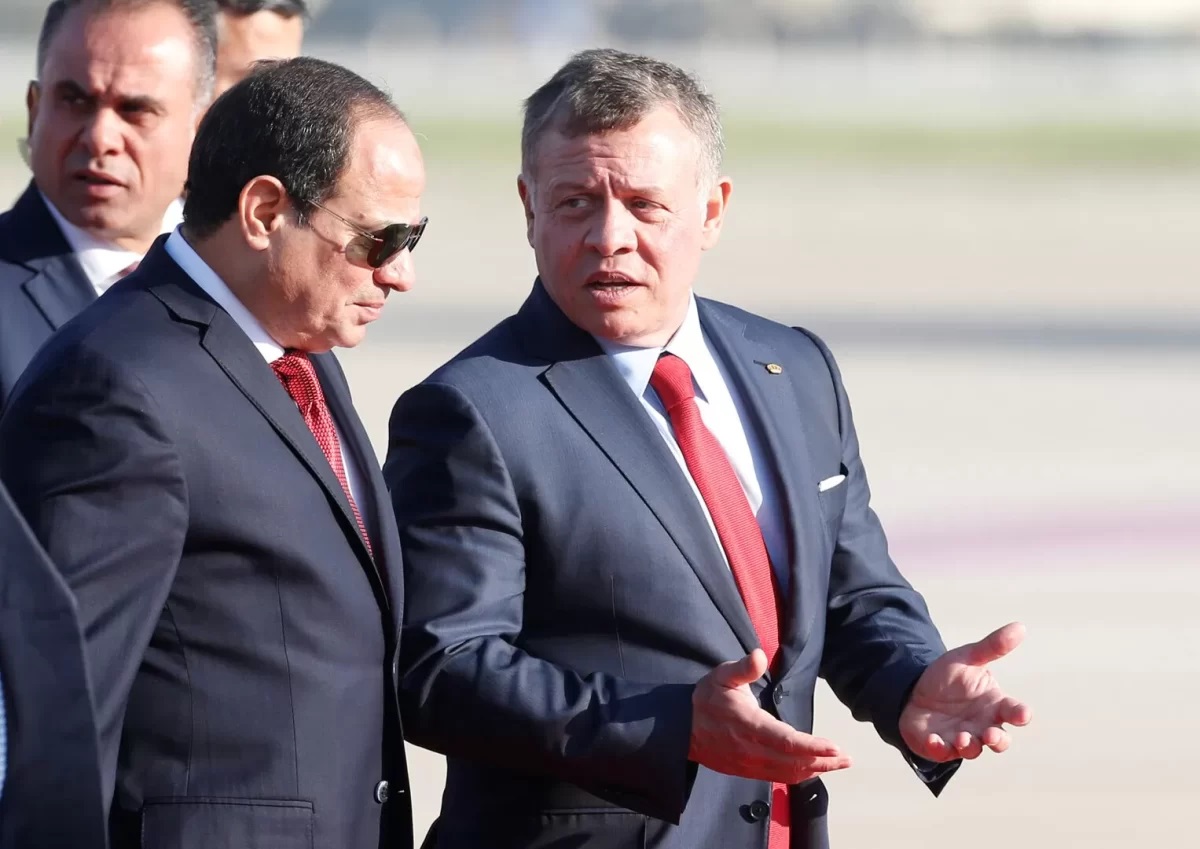Watan-As Cairo prepares to host the emergency Arab summit on February 27, Egyptian Foreign Minister Badr Abdel Aty began a visit to Washington on Sunday to present a plan for rebuilding the Gaza Strip through the establishment of an Arab coalition.
This visit comes ahead of the emergency Arab summit, which aims to discuss the serious developments regarding the Palestinian cause, especially in light of U.S. President Donald Trump’s statements about the displacement of Palestinians from Gaza. Observers see this as a historic test for Arab states to confront an existential threat that not only endangers Palestinians and their cause but also threatens the surrounding Arab countries.
The Emergency Arab Summit
A statement from the Egyptian Foreign Ministry confirmed that the emergency Arab summit, scheduled for February 27, is being coordinated with Bahrain, the current chair of the Arab League, the General Secretariat of the Arab League, and in consultation with Arab states, including Palestine, which requested the summit. Observers believe that despite the many challenges facing the Arab League, it has the capacity to counter displacement plans by adopting multiple strategies. Among these strategies is intensifying humanitarian aid and rebuilding Gaza to strengthen Palestinians’ resilience on their land and thwart displacement plans.
Additionally, the Arab League could enhance cooperation with the international community to exert diplomatic pressure on the U.S. administration and Israel to halt any attempts to displace Palestinians. It could also appeal to international bodies such as the United Nations Security Council and the UN to classify any forced displacement as ethnic cleansing and a violation of international law. Furthermore, the Arab League may consider activating the Joint Defense Agreement to protect Palestinian rights, sending a clear message that Arab nations are ready to take practical steps to safeguard Palestinians.
International Cooperation in Rebuilding Gaza
Given the pro-Palestinian stances of countries like Turkey, Iran, and South Africa, an invitation could be extended to these nations to participate in Gaza’s reconstruction efforts. Such international cooperation would enhance the effectiveness of the reconstruction process and send a strong message of solidarity with the Palestinian people. Diplomats and experts have emphasized that participants in the emergency Arab summit could take a firm stance against any attempts to displace Palestinians from Gaza, whether permanently or temporarily, considering such actions a form of ethnic cleansing. The summit could also communicate with international bodies such as the UN Security Council and the UN General Assembly to formally convey the Arab rejection of these attempts and call for international measures to prevent their implementation.
Forced Displacement as a War Crime
In this context, international law professor Ayman Salama told Al-Araby Al-Jadeed that the Palestinian people’s right to self-determination is a fundamental principle in international law—an inalienable right that cannot expire, as affirmed by UN resolutions, including General Assembly Resolution 3236 of 1974, which recognizes Palestinians’ right to self-determination and the establishment of their independent state. Salama added that any attempts to forcibly resettle Palestinians outside their historic land constitute a blatant violation of this right and amount to an international crime aimed at liquidating the Palestinian cause and undermining their legitimate struggle. He also pointed out that Article 49 of the Fourth Geneva Convention of 1949 prohibits the forced transfer of populations under any circumstances, meaning that any attempt to impose Palestinian resettlement in another country, including Saudi Arabia, would contradict these binding rules of international humanitarian law.
Arab League’s Role in Protecting Palestinians
The Arab League could consider activating the Joint Defense Agreement to protect Palestinians.
Salama further stated that the Rome Statute of the International Criminal Court defines forced displacement as a war crime and a crime against humanity. This means that any plan seeking to forcibly remove Palestinians under the pretext of “resettlement” falls within the scope of international crimes that require accountability and prosecution before international courts. He stressed that the Arab and Islamic stance has been clear through the Arab League and the Organization of Islamic Cooperation, as Arab and Muslim nations have unanimously rejected any projects aimed at liquidating the Palestinian cause or imposing forced solutions that ignore Palestinians’ historical and political rights.
Salama also pointed out that the 2002 Arab Peace Initiative explicitly stated that a just solution to the Palestinian issue must be in accordance with international legitimacy resolutions and not through imposed solutions that diminish Palestinian rights or Arab sovereignty. Regarding recent statements by Israeli Prime Minister Benjamin Netanyahu about resettling Palestinians, Salama considered them not just political provocation but reflective of a colonial mindset that seeks to impose new realities on the ground through force, in blatant defiance of international will and the laws governing relations between states. However, such attempts will continue to be rejected by all nations that believe in justice and rights, as they have repeatedly affirmed their unwavering support for the legitimate rights of the Palestinian people.
-
-
-
-
-
-
